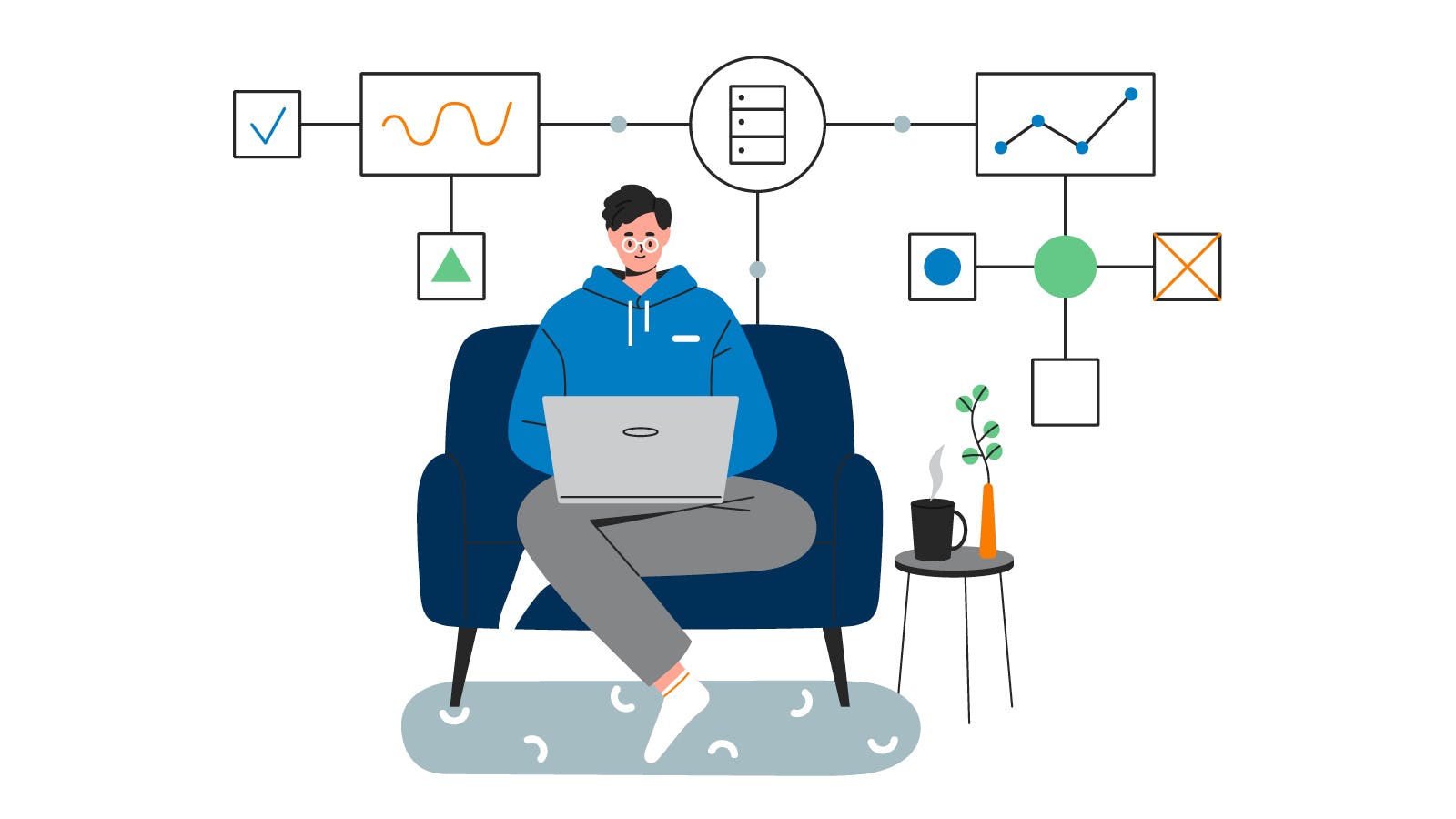Student loan obligations delay 71% of non-homeowners from buying a home, but homeownership and student loan debt aren’t mutually exclusive! You can get approved for a mortgage, purchase a home and still chip away at your student loans. Buying a house with student loan debt just requires a specific look at your finances.
When applying for a mortgage loan, the lender will calculate your debt-to-income (DTI) ratio, or the percentage of your gross monthly income (before taxes) that goes towards payments for rent, mortgage, credit cards, or other debt. Your student loan payments, not the total loan balance, will be included as part of your monthly debts. Each loan program has a different set of guidelines in regards to what monthly student loan payment, if any, is required to be used in calculating your DTI ratio.
Buying a house with student loan debt
According to Fannie Mae, If a monthly student loan payment is provided on your credit report, the lender may use that amount as the monthly payment for qualifying purposes. If your credit report does not reflect the correct monthly payment, the lender may use the monthly payment that is on your student loan documentation (the most recent student loan statement) while calculating your DTI ratio.
If your credit report does not provide a monthly payment for the student loan, or if the credit report shows $0 as the monthly payment, the lender must determine your monthly payment for DTI ratio calculations using one of the options below:
- If your student loan has a graduated payment based on income, the lender may obtain student loan documentation to verify your actual monthly payment for the loan. The lender may calculate your DTI ratio with that graduated payment for your student loan.
- For deferred loans or loans in forbearance, the lender may calculate:
- a payment equal to 1% of your outstanding student loan balance (even if this amount is lower than the actual fully amortizing payment), or
- a fully amortizing payment using the documented loan repayment terms.
Freddie Mac guidelines are slightly different. If your student loans are in repayment, deferment or forbearance, when calculating the monthly student loan payment for the DTI ratio:
- If the monthly student loan payment amount is greater than 0, the lender may use the monthly payment amount reported on your credit report or other student loan documentation in the lender’s file, or
- If the student loan monthly payment amount reported on your credit report is 0, the lender may use 0.5% of the outstanding balance, as reported on the credit report.
For student loan forgiveness, cancellation, discharge and employment-contingent repayment programs, payment may be excluded from the monthly DTI ratio if documentation indicates:
- The loan has fewer than 10 monthly payments remaining, or
- Monthly payment on the student loan is deferred or in forbearance. At the end of the deferment or forbearance period the full balance of your student loan will be forgiven, canceled, discharged or paid if in an employment-contingent repayment program. And,
- You currently meet requirements for student loan forgiveness, cancellation, discharge or employment-contingent repayment program.
If you are purchasing a house using an FHA loan, the lender must include all student loans in your liabilities, regardless of the payment type or status of payments when calculating your DTI ratio.
If the student loan payment used for the monthly obligation is:
- less than 1% of the outstanding balance reported on your credit report, and
- less than the monthly payment reported on your credit report;
The lender must obtain written documentation of the actual monthly payment, the payment status, and evidence of the outstanding balance and terms from the creditor.
Regardless of the payment status, the lender must use the greater of:
- 1% of the outstanding balance on the student loan; or
- the monthly payment reported on your credit report; or
- The actual documented payment, provided the payment will fully amortize the student loan over its term.
- If a student loan payment amount is listed on credit, the listed monthly payment is used when calculating DTI.
- If there is no payment amount listed on credit, 1% of the outstanding student loan balance as listed on your credit report will be used. If you do not qualify with the 1%, then documentation verifying the actual monthly student loan payment may be acceptable.
- If the student loan payment reported on your credit report is $0, and you can provide documentation that the payment is $0 from a graduated income-based student loan repayment plan, $0 can be used to calculate your DTI ratio.
- If you are unable to provide documentation that you have an graduated income-based student loan repayment plan, the lender must calculate your DTI ratio using 1% of the outstanding balance as your monthly student loan payment amount.
- When a student loan payment amount is reported on credit, that is the payment amount that must be used for calculating your DTI ratio.
- When a student loan payment is in deferment or forbearance, or if there is no indication of deferment/forbearance and no payment is reporting, the monthly student loan payment must be calculated using .5% of the outstanding balance.
Student loan debt doesn’t have to postpone your dreams of homeownership, but it may affect your financing. You may wish to contact an expert loan originator in the Motto Mortgage network who can guide you through buying a house with student loan debt and help you find the best loan options for your circumstances.
Dianna Gibson, Loan Originator, Motto Mortgage Summit
Published on September 27, 2019


